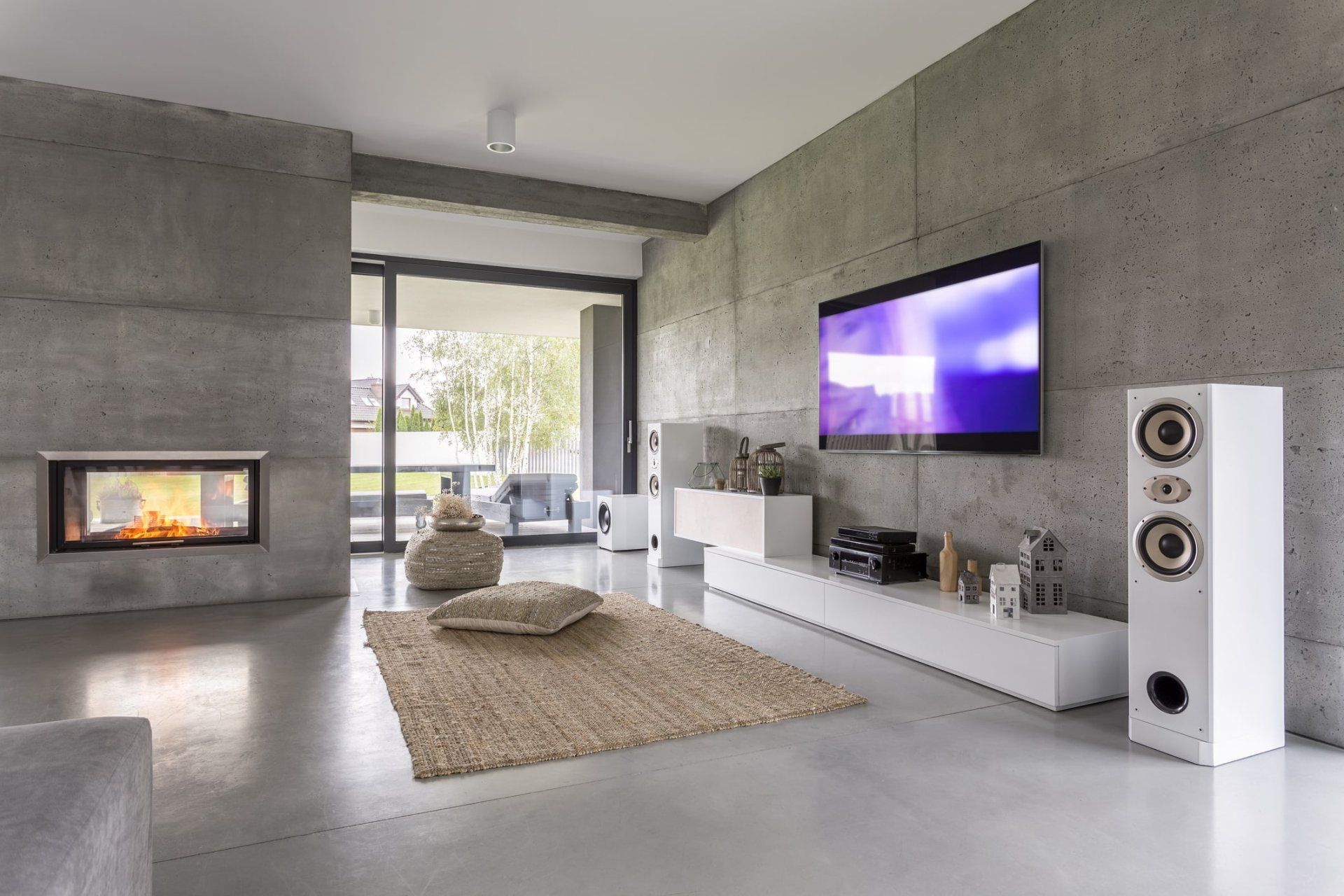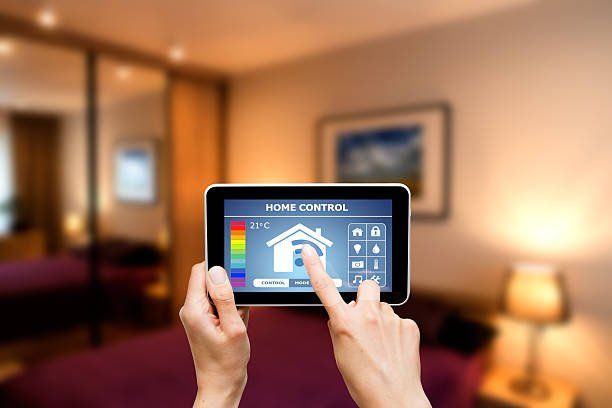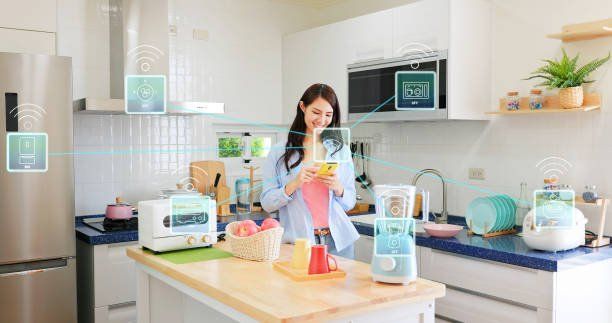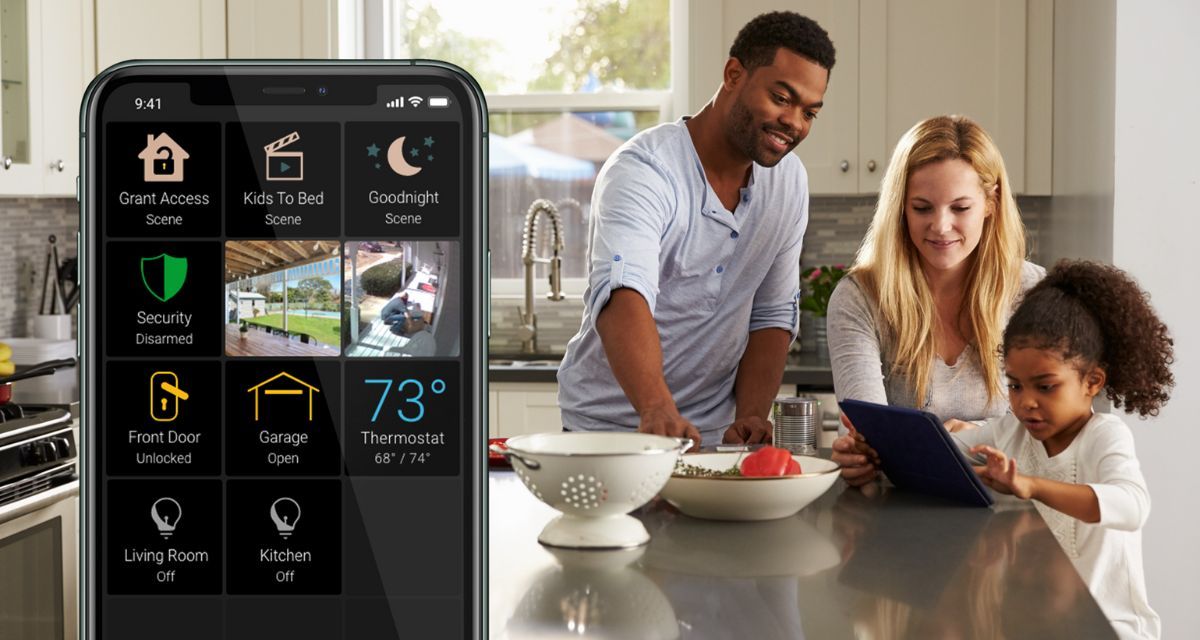How To Choose The Right Network
For Your Smart Home?

A smart home can make your life a lot easier. With the right network in place, you can control your lights, appliances, and more. But with so many different networks available, how do you know which one is right for you? This blog post will discuss the different types of networks available and help you decide which one is best for your needs.
There are two main types of networks available for your smart home: wired and wireless.
Wired networks are more reliable than wireless networks because they aren't susceptible to interference from walls or other electronic devices. However, they can be more challenging to install because you need to run cables through your home. Smart home installation professionals can help you with this if you cannot manage to do it independently.
Wireless networks are more convenient because you don't have to worry about running cables through your home. However, they can be less reliable than wired networks because they can be interfered with by walls or other electronic devices.
Once you've decided on a network, you need to choose a protocol. The common protocols are ZigBee and Z-Wave. ZigBee is a newer technology that uses less power and is compatible with various devices. Z-Wave is easier to set up but is only compatible with specific devices.
The next step is to choose a hub. A smart home hub is a device that allows you to control all of your smart devices from one central location. There are many different types of smart home hubs available, so it's essential to choose one compatible with the appliances you want to use. Home automation installation professionals can help you choose the right hub for your needs.
Factors to consider when choosing the best network for your smart home
To get the best performance out of your smart home devices, you'll want to consider the following factors:
1) What type of devices do you want to connect to your network.
Smart home essentials come in all shapes and sizes, from light bulbs and thermostats to security cameras and door locks. Not all networks are created equal. It's essential to choose one that can accommodate the devices you want to use.
If you only want to connect a few smart devices, a mesh network might be best. These networks are relatively easy to set up and don't require much equipment. However, they might not be able to handle a large number of devices or high-bandwidth activities like streaming video.
If you have a lot of devices, you might need a more robust network like a wired Ethernet network. These networks are more expensive and difficult to set up, but they can handle a more significant number of devices and higher bandwidth activities.
2) Size of the home
The size of your home will dictate the type of network you need. A mesh network might be all you need if you live in a small apartment. Larger homes tend to have more walls and other obstacles that interfere with wireless signals; a wired network might be the best option.
Power-line networks are a good option for bigger homes because they can cover a larger area. However, these types of networks can be affected by power outages, so they might not be the best option if you live in an area with unreliable power.
Ethernet networks are the most reliable option for large homes. These types of networks can handle many devices and high bandwidth activities. However, they are more expensive and difficult to set up.
3) Compatibility of more significant known brand devices with the network
When choosing a network for your smart home, it's important to consider the compatibility of the devices you want to use. Not all devices are compatible with all protocols. It's essential to choose a protocol compatible with the appliances you want to use.
For example, some mesh networks might not be compatible with certain smart household electronics, security cameras, or door locks. If you have specific devices you want to use, make sure that they're compatible with the network before purchasing.
4) Make sure the network is secure
All networks, regardless of type, should be secured with a strong password. You might also want to consider using encryption to protect your data. Encryption is a process that scrambles data so that authorized users can only access it.
VPNs are another way to secure your data. VPNs encrypt your data and route it through a secure tunnel, making it more difficult for hackers to access your information. A secure network is vital for smart home products since you'll be connecting devices that can control your lights, appliances, and more.
You should also consider setting up a guest network if you plan on having visitors who might not need access to your entire home. A guest network is a separate network that you can give to visitors that allows them to access the internet without having access to your data.
5) How to set up a smart home
Smart home network installation can be challenging. If you're not comfortable setting up your smart home network, you might want to look for a system that offers professional installation.
It would help if you also considered the customer support options offered by the company. Look for companies that provide phone and email support if you encounter problems during setup or use.
Conclusion
When choosing a network for your smart home systems, you should keep a few things in mind. First, consider the size of your home and the number of devices you'll be using. Second, make sure the devices you want to use are compatible with the network. Third, set up a strong password and encryption to protect your data. And finally, consider the ease of setup and customer support options. By following these tips, you'll be sure to choose the right and secure network for your smart home.










